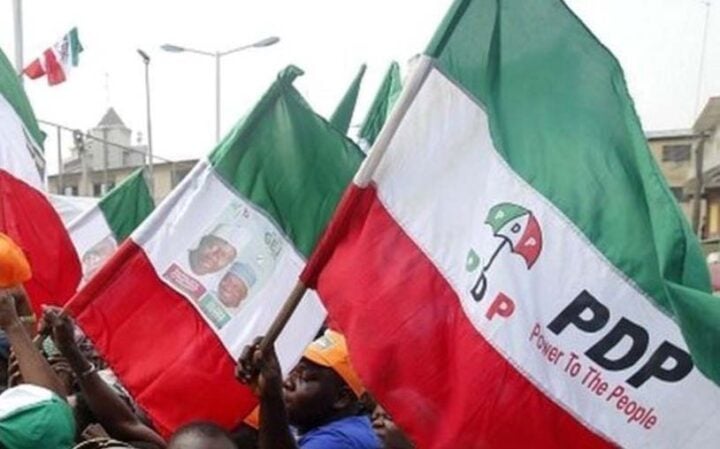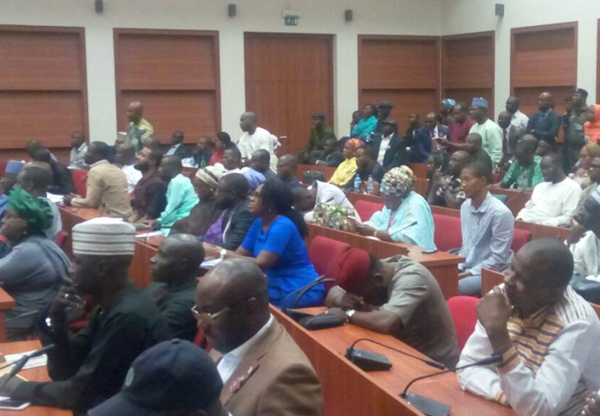BY ABUBAKAR D SANI
Introduction
I believe that the recurring incidence of non-availability of petrol at the pumps puts in stark relief the failure of policy options that have so far been deployed to tackle it. It is thus clear that fresh thinking is required. In this regard, I believe that the problem will persist unless any strategy for permanently resolving it has at its core the elimination of the clearly unsustainable practice of subsidizing the product. I intend to demonstrate how this can be achieved, somewhat surprisingly, through the instrumentality of the law.
But first…
Advertisement
What are subsidies?
A subsidy is simply an amount of money paid by the Government or an organization to reduce the cost of producing a product in order to keep its price low. See the Oxford Advanced Learners’ English Dictionary, 6th edition, page 1194. No law imposes such an obligation on the Government, at least in respect of petroleum products. In other words, no law backs the practice of subsidizing petroleum products in Nigeria. In this regard, the relevant extant statutes are the following:-
- The Petroleum Act, 1969, Section 6(1);
- The Price Control Act, 1977;
- The Petroleum Equalization Fund Act 1975;
- The Petroleum Products Pricing Regulatory Agency Act 2003;
- The provision for subsidies in the annual Appropriation Acts or Budget;
- Item 62(e) of the Exclusive Legislative List in Schedule Two of the 1999 Constitution.
By virtue of this last enactment, i.e., Item 62(e) of the Exclusive Legislative List of the Constitution, only the National Assembly is competent to control the prices of any product in Nigeria. This power is, however, to be exercised only in respect of essential products and commodities as designated by the Assembly. With the exception of drugs, the National Assembly has designated no product as essential. To that extent, the aforesaid statutes are all ultra vires the Assembly, invalid, null and void, vide Section 1(1)& (3) of the Constitution. It follows that the practice of the Federal Government, through the NNPC, the Federal Ministry of Finance, the PPPRA, etc of subsidizing petroleum products is also unconstitutional, invalid, null and void.
Advertisement
It is important to stress that what Item 62(e) of the Exclusive Legislative List of the Constitution recognizes is price control and not subsidization; the two are not the same, for, whilst a subsidy is a means of controlling prices, not all price control measures involve subsidies, as it depends on the modalities, if any, applicable in any given case. I submit that the express terms of the relevant one in this case, i.e., the Price Control Act, leave no room for conjecture that the National Assembly intended to subsidize petroleum products. Accordingly, the annual practice of appropriating funds in the Budget for fuel subsidy payments is illegal because it is inconsistent with the Price Control Act – even assuming, without conceding, that the National Assembly has designated petroleum products as essential commodities.
The price control act
Petroleum products are Item 7 on the list of products contained in the First Schedule of the Act whose prices are subject to control at the discretion of the Minister of Commerce, and the parameters for fixing their open market prices of are contained in Section 5 of the Act, which recognizes two different scenarios – a basic price under Sec. 5(1)(a) and a permitted variation to the basic price, vide Sec. 5(1)(b). By virtue of Sec. 1(1) of the Act, the Price Control Board is the sole body responsible for fixing the basic price and the variation permitted thereto, for the whole country.
With regard to the basic price, Sec. 5(2) of the Act differentiates between locally produced goods, and goods imported into Nigeria. In respect of the first, i.e., goods produced (read: fuel refined) in Nigeria, the basic price is “the price which, in the opinion of the Board, properly represents the cost of production of the commodity, plus the manufacturer’s profit” – Sec. 5(2)(a). In the second case, i.e., imported goods, the basic price is “the duty-paid landed cost in Nigeria plus the importer’s profit” – Sec. 5(2)(b). Sec. 5(3) of the Act permits a variation to the basic price, being an amount which, in the opinion of the Price Control Board, “represents the transport and other costs plus the distributor’s profit, which ought properly to be added to the basic price in order to represent a fair controlled price, wholesale or retail, in any State.” This provision is the exclusive subject matter of the Petroleum Equalization Fund (Management Board, etc) Act, 1975.
Advertisement
It can be seen that the two, i.e., the basic price and the permitted variation, constitute the controlled price of petrol in Nigeria. I believe that this is evident from Sec. 18(1) of the Act which defines “controlled price” as “the controlled price, wholesale or retail, fixed in accordance with Section 5 of this Act”. By virtue of Sec. 6(1) of the Act, the controlled price of fuel is its open market price. It provides thus: “It shall be unlawful for any person to sell, agree to sell or offer to sell any or employ any other person, whether or not that other person is of full age, to sell any controlled commodity at a price which exceeds the controlled price.”
Sec. 4 of the Act provides peremptorily that “price control shall continue to be imposed in accordance with this Act” on, inter alia, petroleum products. This means that the prices of petrol et al should be controlled exclusively in accordance with the provisions of the Act, on the maxim: expressio unius est exclusio alterius – the express mention of one thing in a statute implies the exclusion of others which otherwise might be included. In other words, this excludes Sec. 6 of the Petroleum Act which, after all, merely empowers the Minister of Petroleum Resources to fix the prices of petroleum products. In any event, neither statute requires the government to absorb part of the cost of the importer or local producer of petroleum products in order to reduce their open market or controlled prices. In other words, none of them requires the government to subsidize petroleum products.
Both statutes were judicially considered by the Federal High Court, Abuja in Suit No. FHC/ABJ/CS/591/09: BAMIDELE ATURU vs. THE HON. MINISTER OF PETROLEUM RESOURCES & 2 OTHERS, where the court ordered the Government to “fix the prices of petroleum products as mandatorily required by the Petroleum Act and the Price Control Act.” It is important to note that the court merely ordered the Government to fix – not to subsidize – fuel prices. The noun ‘subsidy’ has already been defined. The verb ‘fix’ on the other hand, in relation to prices, simply means “to make a decision in relation to a price or amount, and not allow it to change.” See Macmillan English Dictionary, 2nd edition page 563.
This judgment is currently on appeal at the instance of the Government. Until it is overturned, it is clear that the Government has consistently disobeyed it by failing to ‘fix’ the prices of petroleum products as provided by the Price Control Act and the Petroleum Act. Given that neither of those statutes requires the Government to subsidize petroleum products, but merely to fix their prices (which do not mean the same thing, as aforesaid), it is obvious that complying with the terms of the judgment would actually enable the Government to end the current regime of subsidies in the petroleum sector, albeit fortuitously.
Advertisement
This is because, applying the parameters in Section 5 of the Price Control Act (as ordered by the court in Bamidele’s case) would mean passing the entire costs of production, refining and importation of fuel to the consumer at the pump – in the open market – with the Government under no legal obligation whatsoever to absorb any part of those costs. No one in his right senses will blame the Government for complying with a court order. To give the policy a human face, however, the Government can waive custom duty payable on imported fuel. I submit that the only provision of the Price Control Act which is negotiable is the profit margin of the marketers; to expect the Government to do more, in my view, would be asking it to bend the law to breaking point.
Conclusion
Advertisement
Pending the determination of the appeal in Bamidele’s case, leading, possibly, to total deregulation, I believe that the way forward is for the Government to apply the provisions of Section 5 of the Price Control Act by periodically fixing the prices of petroleum products, in consultation with the marketers and other stakeholders, secure in the knowledge that doing so would not result in subsidization but, rather, its elimination. For the Government to achieve this, however, it must be resolute that under no circumstances, will it continue to bear part of the costs of the marketers, as to do so would obviously perpetuate the unwholesome status quo – apart from being manifestly illegal as aforesaid.
(This is an abridged version of an article published in March 2016 during another fuel crisis, titled “Why Fuel Subsidies are Illegal and Unconstitutional”)
Advertisement
Views expressed by contributors are strictly personal and not of TheCable.
Add a comment






